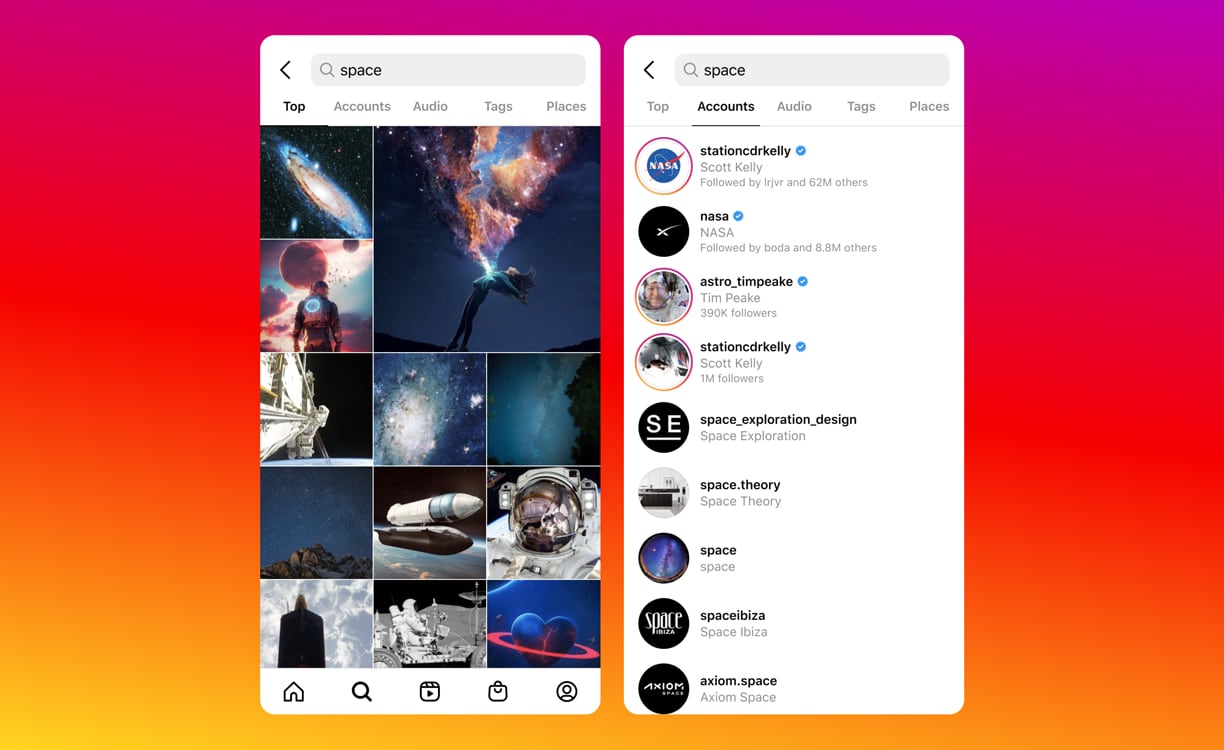How to show up at the top of Instagram search according to the head of Instagram
Image Credit: Instagram
Adam Mosseri talks about how Instagram search works, how it’s ranked, tips on how to show up on top and what’s next for search.
During a recent video, head of Instagram Adam Mosseri shared the next steps for the social media platform. Mosseri’s back again detailing how Instagram works on IGTV and a blog post, this time with a focus on all things search. Instagram search sorts through millions of accounts and posts to show you a personalised feed, be it close friends, creators you love or ideas for a vegan dessert. Today Instagram are hoping to turn search from a way to navigate Instagram to a place to browse content. Instagram are taking steps to help you find the things you love and discover entertaining things to share even if you don’t have an exact username or hashtag in mind.
How Instagram rank Search results
When you type “space” in the search field, Instagram will display accounts, audio, hashtag and places that match the text. This could be results like @space and #space because “space” appears in the name, however Instagram will also try to show space-related photos and videos even if the word isn’t found in the caption. Instagram Search shows different results for each user depending on your interests and activity. These factors along with the popularity of results determine how to rank search. Instagram calls these signals. According to Instagram, the most important signals in order of importance are:
- Your text in Search. The text you enter in the search bar is by far the most important signal for Search. We try to match what you type with relevant usernames, bios, captions, hashtags and places.
- Your activity. This includes accounts you follow, posts you’ve viewed, and how you’ve interacted with accounts in the past. We usually show accounts and hashtags you follow or visit higher than those you don’t.
- Information about the search results. When there are a lot of potential results, we also look at popularity signals. These include the number of clicks, likes, shares and follows for a particular account, hashtag or place.
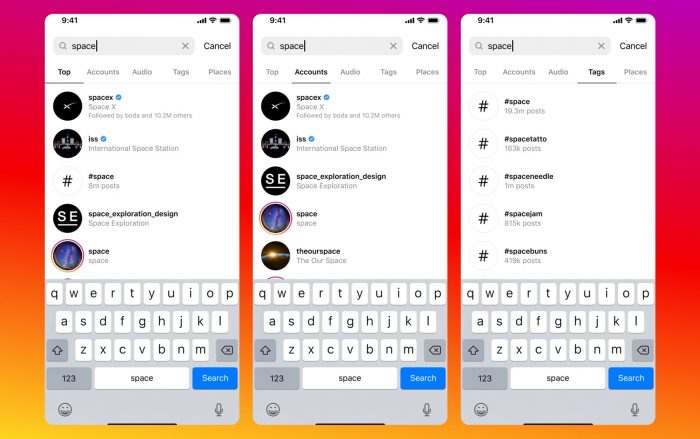
How to show up higher on Instagram Search
It’s never been a secret how important SEO is. Showing up near the top of Instagram is a crucial tool to being discovered. Mosseri says users need to think about their handle and profile name, keywords and locations in their bio, as well as the keywords and hashtags in their captions. All of these details are taken into account by Instagram’s ranking algorithm:
- Use a fitting handle and profile name. Search results are matched by text. Using an Instagram handle or profile name that’s related to the content of your posts is your best bet for showing up in relevant searches. If your friends or fans know you by a certain name, include that name in your username or profile so that you can show up when they search for you.
- Include relevant keywords and locations in your bio. Same principle here. Make sure your bio includes keywords about who you are and what your profile is about. If your account is location-specific, like for a small business, sharing your location in your bio can make it easier for people in your area to find you.
- Use relevant keywords and hashtags in captions. For a post to be found in Search, put keywords and hashtags in the caption, not the comments.
How Instagram keeps Search safe
In Search, Instagram hides accounts, hashtags and posts that contains violent content, false information and spam that goes against their Recommendations Guidelines or completely removes content from the platform that violates their Community Guidelines. For sensitive searches, Instagram will show pop-ups with trusted information.
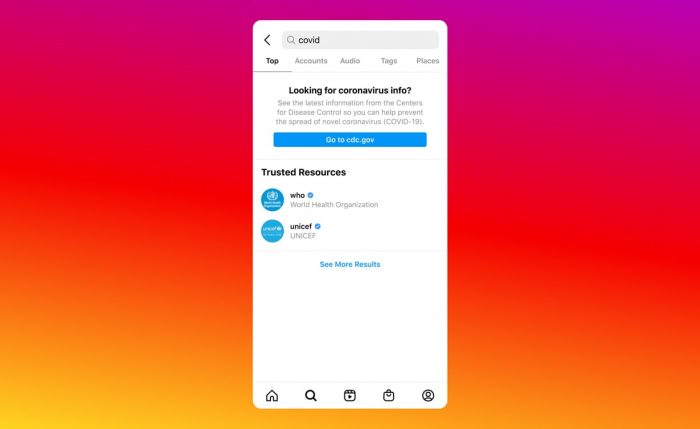
How are Instagram improving Search?
Finally Mosseri details the next steps for Search. Internally called Interests Search, Instagram will show suggested keywords as you type. Much like the Top tab on TikTok, when you tap the keyword the app will show an explore-like page, with a grid of photos and videos. Currently Instagram are working on getting keyword search results right in English, before bringing support for other languages in the future.
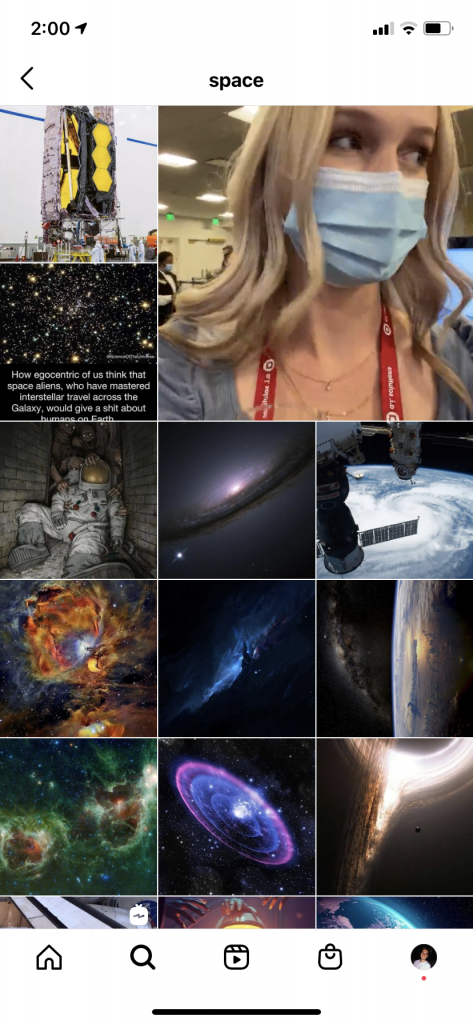
Instagram ‘Interests Search’ 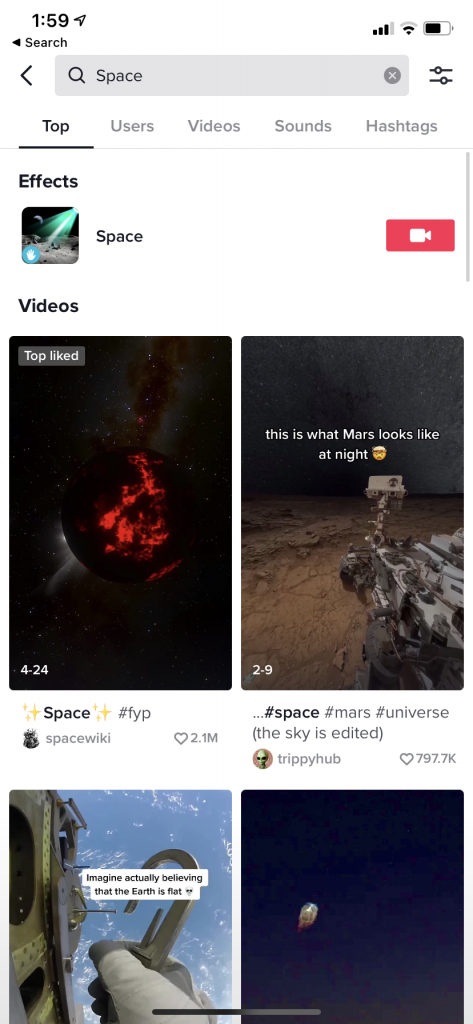
TikTok ‘Top’ search
